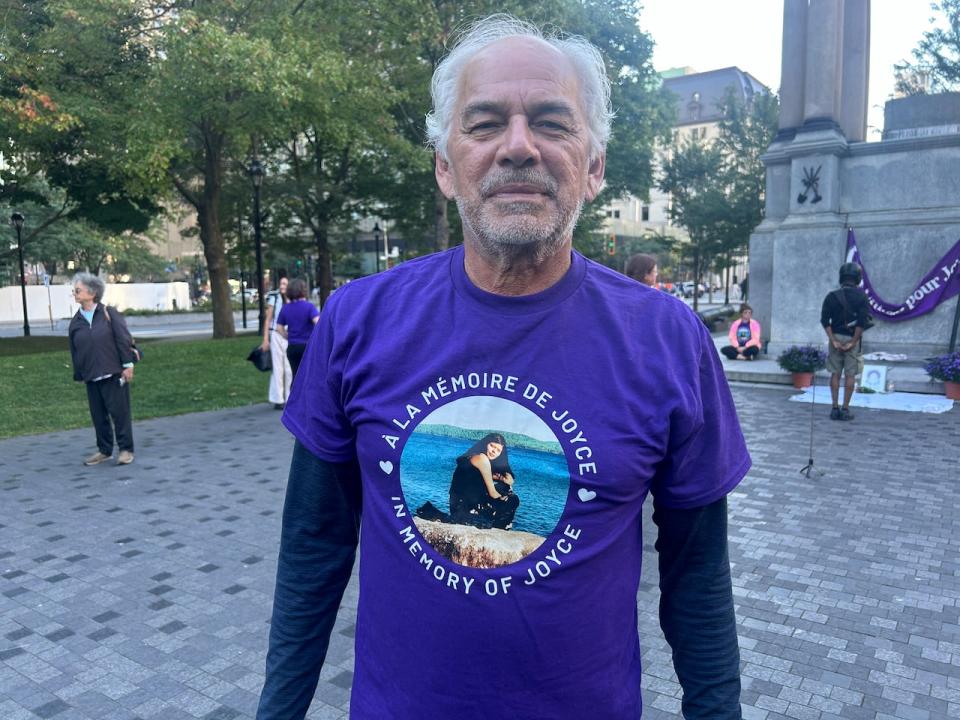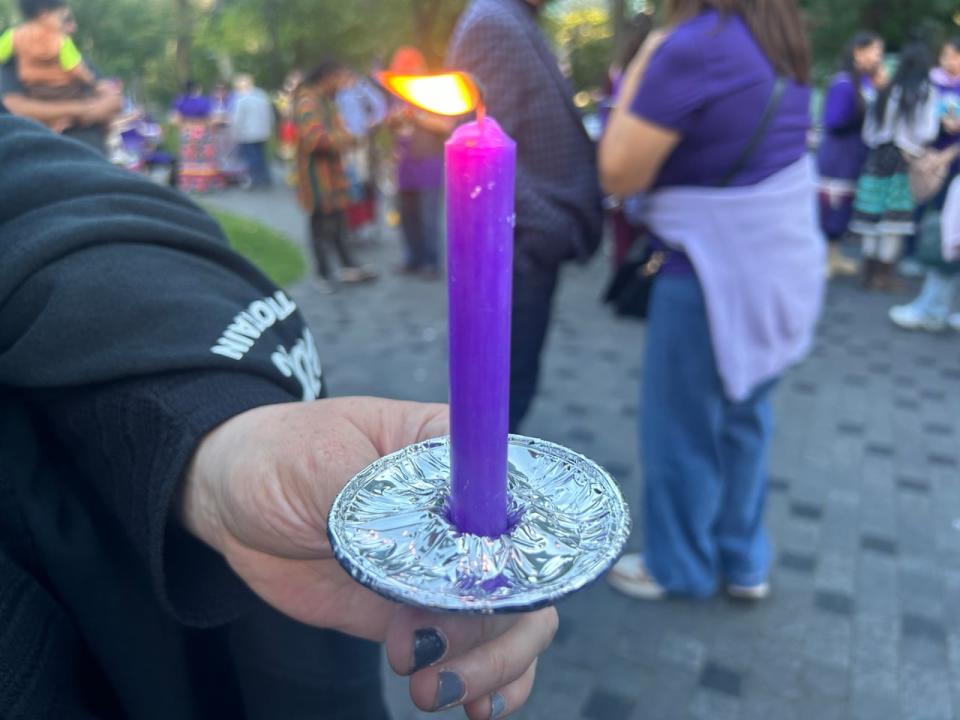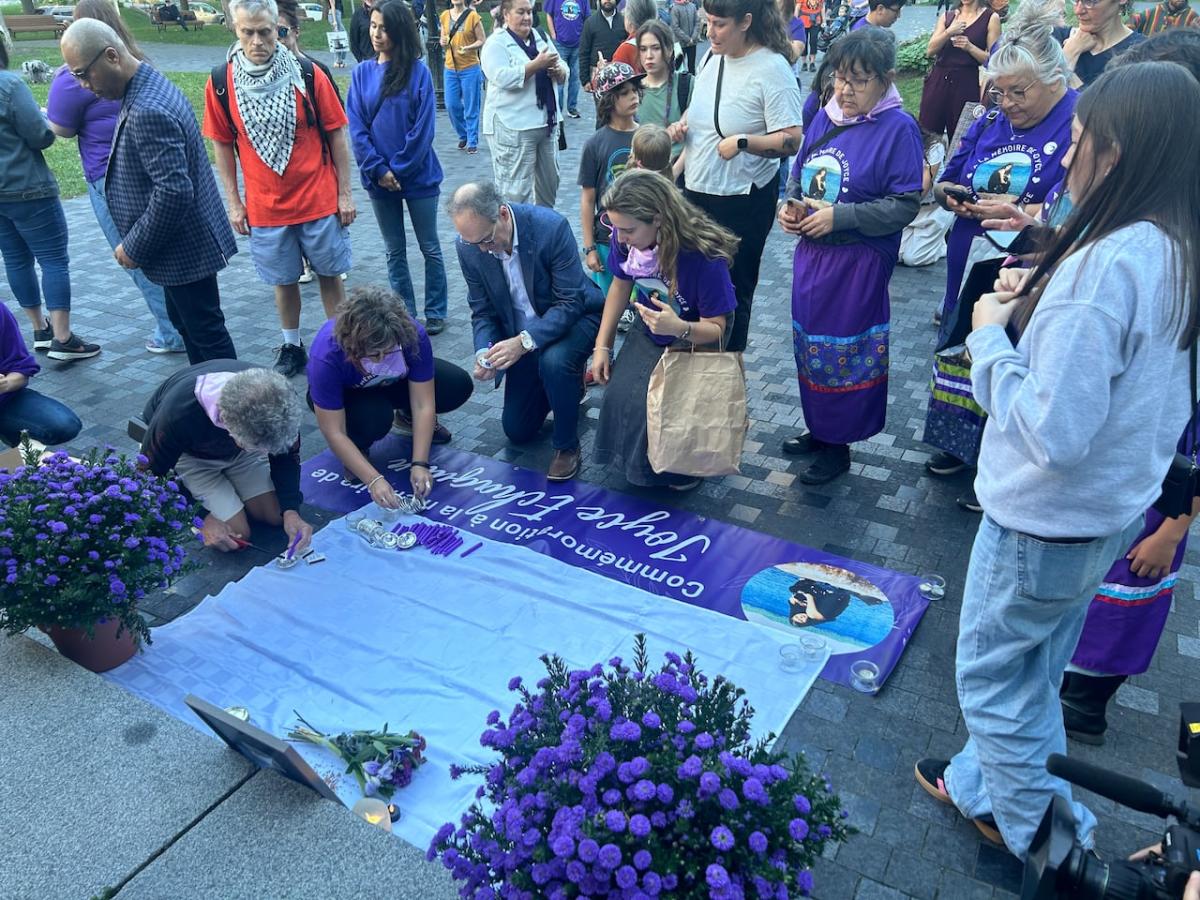People gathered in downtown Montreal Saturday evening on the fourth anniversary of Joyce Echaquan’s death for a rally calling on Quebec to take more action against discrimination in health care.
Ghisliain Picard, the Chief of the Assembly of First Nations Quebec-Labrador, was in the crowd wearing, like most of the attendees, a purple shirt with a photo of Echaquan printed on the front.
“The community is still waiting for some kind of movement, action, that will provide some closure especially for the close relatives of Joyce Echaquan, for [her] community of Manawan,” he said.
“All of that lies in the hands of government.”
Four years ago, Echaquan, an Atikamekw woman, livestreamed a video showing how staff at a Joliette, Que., hospital were treating her while she lay dying.
In the video, the 37-year-old could be heard screaming in distress, as well as employees insulting and hurling racist remarks at her.
Since then people have been calling for the Quebec government to adopt Joyce’s Principle, which is aimed at ensuring that Indigenous people receive the highest standard of medical care free of racism and bias.

Ghislain Picard is the Chief of the Assembly of First Nations Quebec-Labrador. (Kwabena Oduro/CBC)
Quebec’s Indigenous Affairs Minister Ian Lafrenière told CBC News Saturday he can’t adopt the principle because it would entail recognizing the existence of systemic racism in the province.
“We presented two weeks ago a bill, Bill 32, that includes most of the elements of the Joyce’s Principle but systemic racism, and we stand on the same position. So people can be disappointed, but they can’t be surprised,” he said while at a CAQ political conference in Saint-Hyacinthe, Que.
Bill 32 requires health-care workers to adopt a “cultural safety approach” and be more inclusive when interacting with Indigenous patients. Introduced last year by Lafrenière, the bill is currently being studied by a committee at the National Assembly.
Jennifer Petiquay-Dufresne, the executive director of the Office of Joyce’s Principle, said that Lafrenière’s position on systemic racism puts off any concrete actions that would actually help the community.
“It’s difficult to move forward with a government that doesn’t recognize our reality,” said Petiquay-Dufresne, who was at Saturday’s rally.


Attendees at the rally wore purple, which was Joyce Echaquan’s favourite colour, and lit candles in her honour. (Kwabena Oduro/CBC)
Premier François Legault mentioned Echaquan in his speech to party faithful at Saturday’s conference.
“We should all keep her in our thoughts,” he said, adding that National Day for Truth and Reconciliation is also only two days away.
“This is an opportunity to remember that there’s still work to be done toward, one, reconciliation, and two, to work more and more hand in hand,” he said.
Picard says there’s a broad social consensus on the existence of systemic racism and that the government has chosen to isolate itself in that conversation.
“We know there is systemic racism because our people live through it,” he said. “We’re hoping that we can find a way to turn the page and move on to another chapter.”

